Seven claims made in new royal book from Brexit to Coronation
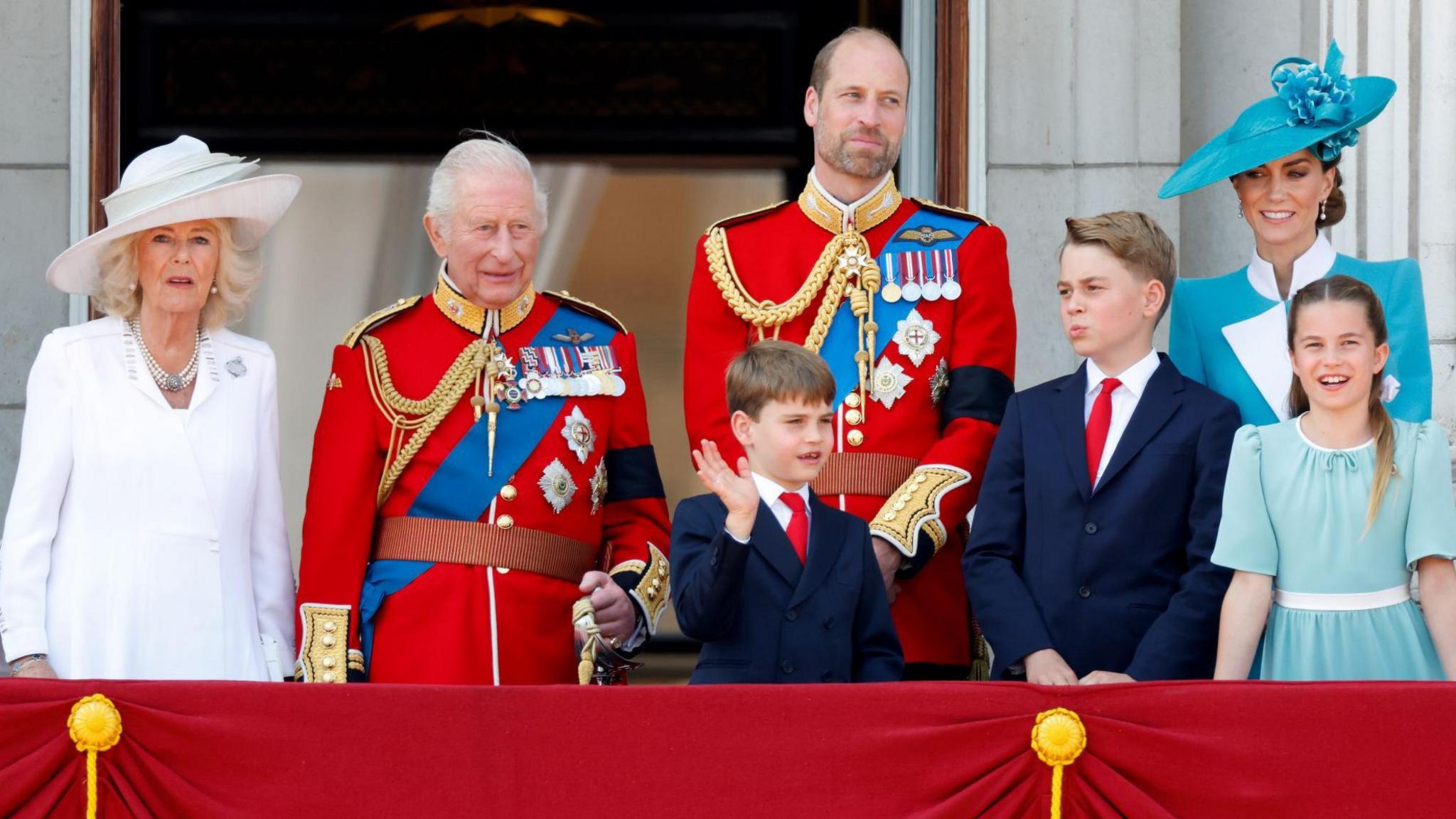
- Published
Valentine Low's eminently readable, behind-the-scenes book about the royals has been making headlines, including how Queen Camilla fended off a sexual assault when she was a teenager.
Power and the Palace, published next week and written by the former royal correspondent for The Times, explores the tangled relationship between the royals and the world of politics.
From nightcaps on the royal train to discussions over the Coronation budget, here are some of the most eye-catching anecdotes in the book:
Queen fought off sex attack
Queen Camilla fought off a sexual assault and got the perpetrator arrested, in an incident that took place on a train to London when she was a teenager in the 1960s, Low says in the book.
The author says the Queen told Boris Johnson the story of her experience in 2008 when he was mayor of London. Johnson's former communications director, Guto Harri, told Low the details of that conversation.
"I did what my mother taught me to. I took off my shoe and whacked him in the nuts with the heel," Camilla is said to have told Johnson.
According to this account, Camilla was "self-possessed enough when they arrived at Paddington to jump off the train, find a guy in uniform and say 'That man just attacked me,' and he was arrested".
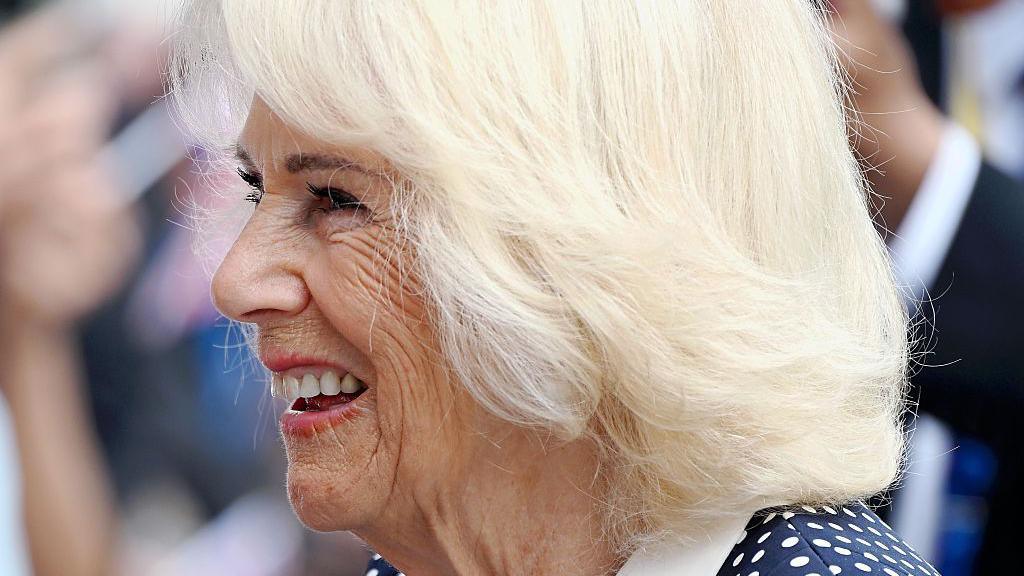
Queen Camilla, in Cornwall this week, has campaigned against domestic violence
Buckingham Palace has a policy of not commenting on claims in books.
But a source close to the Queen said: "If some good comes of this publication, which is that the wider issues are discussed, it de-stigmatises the whole topic and empowers girls today to take action and seek help and to talk about it, then that's a good outcome."
It's a story that certainly is in keeping with Queen Camilla's outspoken campaigning against domestic abuse and violence against women.
She has visited women's refuges, challenged the taboos surrounding domestic abuse and at a reception for International Women's Day held up stones that in 1914 had been thrown by suffragettes to break windows in Buckingham Palace.
Royal nightcap whisky
Michael Gove, while he was environment secretary in 2018, was said to have been invited for a late drink with the then Prince of Wales in the royal train - a dedicated train for monarchs since Queen Victoria's reign.
The drink was a Laphroaig whisky - a smoky, peaty Scottish malt, like pouring a wistful but rather melancholy highland walk into a tumbler.
Gove, on a trip with the prince, was advised not to expect a big breakfast the next morning, with Charles said to prefer a "tiny little vase of fruit and then some pressed fruit juice concoction, sort of beetroot and ginger or whatever".
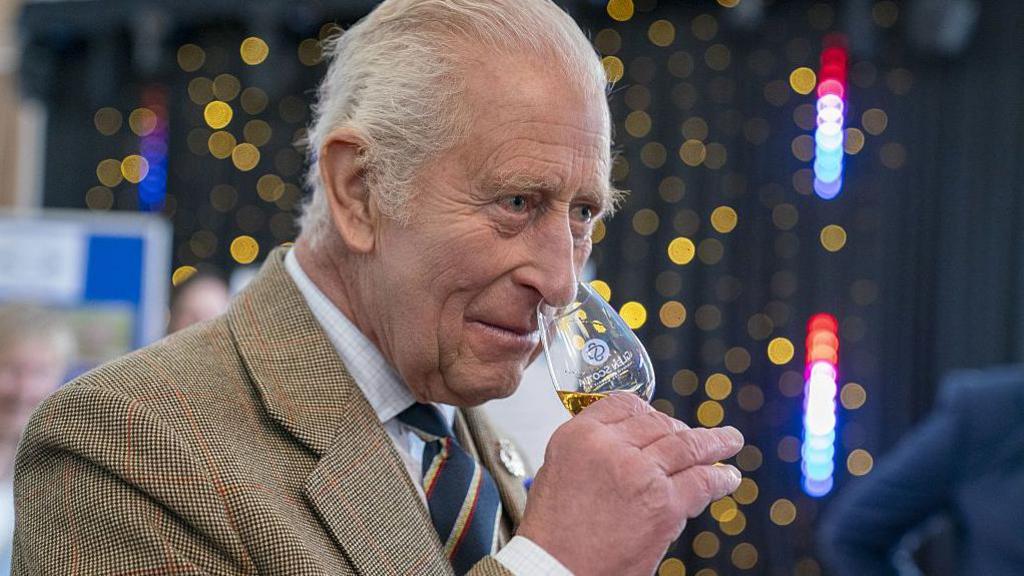
What was in the glass for a nightcap on a royal visit?
King's strained relationship with Johnson
Boris Johnson was late for a meeting in 2008 with the then Prince Charles because he'd travelled in the wrong direction on the London underground. He made sure he wouldn't be late for the next meeting by going on his bike.
That seemed to amuse Camilla, but Charles and Johnson were said to have had a frosty relationship, including a dispute over his government's plan to process asylum applications in Rwanda years later.
Queen Elizabeth II 'was a Remainer'
The late Queen was careful to avoid public interventions in political matters, but the author says she was instinctively against the upheaval of Brexit.
The author quotes royal insiders and an unnamed senior minister, who said the Queen had been frustrated by some of the European Union's bureaucracy, but on balance she thought it was better to remain.
The Queen saw the EU as part of the post-war settlement that she supported, according to the book's sources.
There are other glimpses of the late Queen's dealings with politicians. She got on well with Harold Wilson and John Major but had a much more tense relationship with Margaret Thatcher.
Queen Elizabeth personally rang Tony Blair to congratulate him when the Good Friday Agreement was signed in Northern Ireland in 1998. "I thought, I bet she doesn't do this often," Blair is quoted as saying.
There were other unexpected interventions. She is said to have raised concerns with ministers that defence cuts should not threaten the Army's School of Bagpipe Music and Highland Drumming.
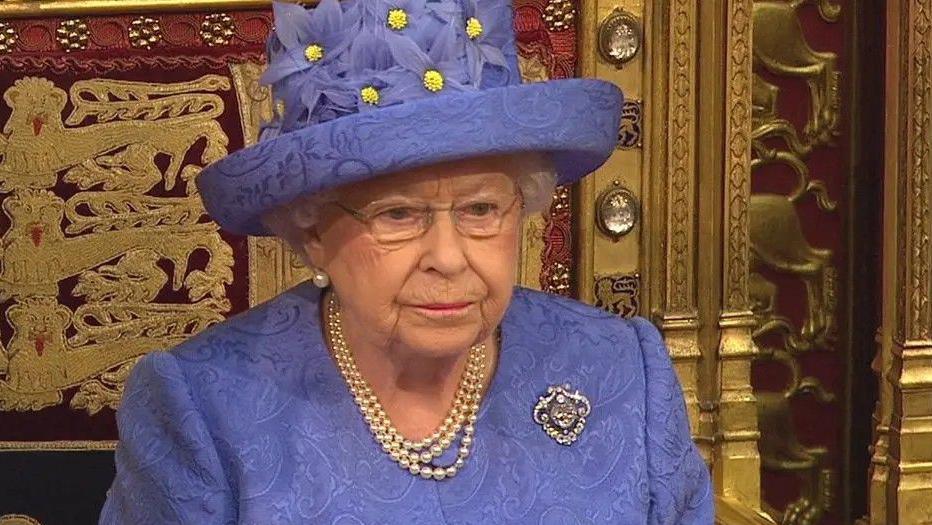
Queen Elizabeth was said to have been against leaving the EU
King unsettled by Prescott
"Does he always do that thing with you?" That was the question put by Charles to then Prime Minister Tony Blair, about Deputy Prime Minister John Prescott. The author says Prescott was in a "class of his own when it came to discomfiting Charles".
Charles is said to have explained: "When he's sitting opposite you, he slides down the seat with his legs apart, his crotch pointing a little menacingly, and balances his teacup and saucer on his tummy. It's very odd."
"Was it, asked Charles, a 'sign of hostility or class enmity?' No, said Blair. 'He just likes drinking his tea that way," writes Low.
Government wanted showcase Coronation
It was the government, rather than the Palace, that wanted to make sure that the Coronation of King Charles III in 2023 was a well-funded spectacle.
While the Palace was wary of anything too ostentatious when people were struggling to pay their bills, the "very clear guidance" from government was there should be no cut-price ceremony and that there should be a "maximalist" approach.
In the end, the Coronation cost £72m, including £22m for policing costs.
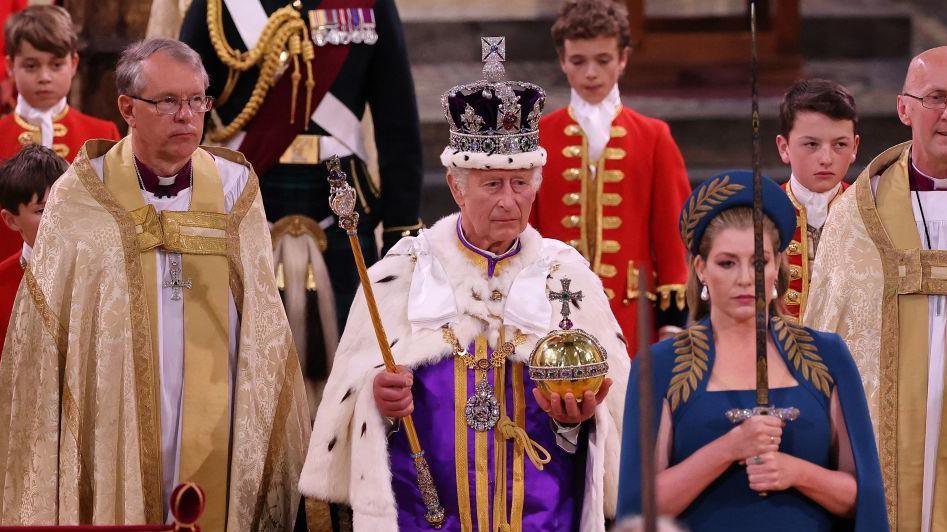
The government wanted a spectacle rather than a cut-price Coronation
'Hardball' funding talks
The book reveals negotiations over public funding for the royals when the Sovereign Grant was introduced in 2012 - and presents the Palace as cannier about money than their counterparts in Westminster.
When concerns were raised that the link with the Crown Estate profits might prove over-generous, and was likely to inflate the value of the annual grant, Low says the Palace played "hardball" and stuck to the deal.
As the BBC showed earlier this year, there was indeed a significant increase over time, with public funding trebling in real terms, to pay for repairs to Buckingham Palace.
Power and the Palace, by Valentine Low. Headline Press. Published 11 September.
Queen hails emergency relief charity's 25th birthday
- Published2 September
Harry set for UK visit but will he see his father?
- Published30 August
Meghan on who said 'I love you' first, and what she misses about UK
- Published26 August

Sign up here to get the latest royal stories and analysis every week with our Royal Watch newsletter. Those outside the UK can sign up here.